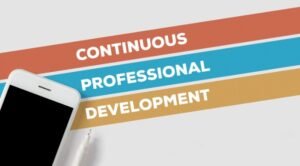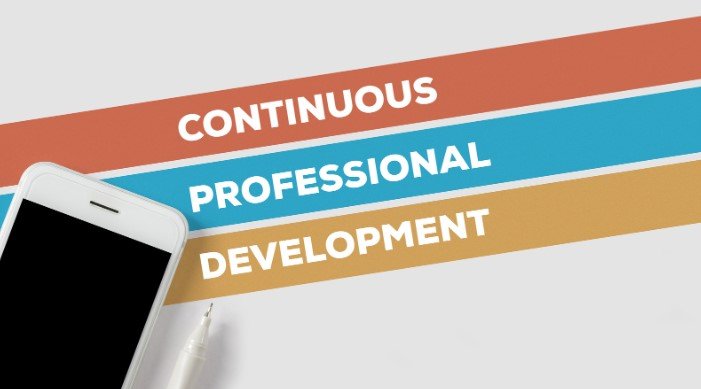 Greetings, eager learners on a quest for professional growth! In a rapidly evolving world, where industries are constantly transforming, it becomes vital to adapt and grow alongside them. This brings us to the concept of professional development—a continuous learning journey that empowers us to thrive in our chosen fields. So, let’s embark on an exploration of why studying professional development is essential and how it can unlock the path to personal and career growth. Get comfortable, grab a cup of inspiration, and let’s dive in!
Greetings, eager learners on a quest for professional growth! In a rapidly evolving world, where industries are constantly transforming, it becomes vital to adapt and grow alongside them. This brings us to the concept of professional development—a continuous learning journey that empowers us to thrive in our chosen fields. So, let’s embark on an exploration of why studying professional development is essential and how it can unlock the path to personal and career growth. Get comfortable, grab a cup of inspiration, and let’s dive in!
The Benefits of Professional Development: Nurturing Our Potential
At its core, professional development is about nurturing our potential and embracing lifelong learning. Here are some key benefits that highlight the importance of dedicating time and effort to our ongoing growth:
1. Personal Growth and Self-Improvement
Professional development offers a platform for personal growth and self-improvement. By engaging in continuous learning, we expand our knowledge, sharpen our skills, and deepen our understanding of our chosen field. This process not only enhances our professional capabilities but also fosters personal satisfaction and fulfillment.
2. Enhancing Knowledge and Skills
Through professional development, we have the opportunity to enhance our knowledge and skills in specific areas. Whether it’s acquiring new technical skills, improving leadership abilities, or developing effective communication techniques, studying professional development enables us to stay relevant and adaptable in our ever-changing work environments.
3. Keeping Up with Industry Trends and Advancements
Industries are constantly evolving, with new trends and advancements shaping the way we work. Professional development ensures that we stay up-to-date with the latest developments, best practices, and emerging technologies within our fields. This knowledge equips us to navigate industry changes with confidence and remain competitive.
4. Increasing Career Opportunities and Advancement
Investing in professional development opens doors to new career opportunities and advancement. Employers value individuals who demonstrate a commitment to ongoing growth and development. By continually expanding our skill set and knowledge base, we position ourselves for promotions, new job prospects, and increased job security.
5. Building Professional Networks and Relationships
Professional development often involves connecting with others who share similar interests and goals. Engaging in workshops, conferences, or online communities allows us to build valuable professional networks and relationships. These connections can lead to collaboration, mentorship, and future career opportunities.
Professional Development in Various Fields: Tailoring Growth to Your Profession
Professional development is a universal concept that applies to various industries and disciplines. Let’s explore a few examples to highlight their significance:
- In the field of technology, professionals may study development frameworks, cybersecurity protocols, or data analysis techniques to stay abreast of emerging technologies.
- Educators can engage in professional development to learn about innovative teaching methodologies, student-centered learning approaches, or special education practices.
- Healthcare professionals can pursue continuing education to enhance their clinical knowledge, learn about new treatments, or explore advancements in patient care. For instance, You can take Houston CNA training to get yourself prepared for a dynamic nursing career.
Remember, professional development is a continuous process that should be tailored to the specific demands and trends within your profession.
Strategies for Effective Professional Development: Unlocking Your Potential
To make the most of your professional development journey, consider implementing the following strategies:
1. Set Clear Goals and Objectives
Define specific goals and objectives that align with your professional aspirations. This clarity will guide your choices and ensure that your efforts are purposeful and targeted.
2. Identify Relevant Resources and Learning Opportunities
Explore a variety of resources and learning opportunities available to you. These may include online courses, industry conferences, workshops, webinars, or professional organizations. Stay informed about industry publications, podcasts, or blogs that offer valuable insights.
3. Create a Personalized Development Plan
Craft a personalized development plan that outlines the skills, knowledge, and experiences you wish to acquire. Break down your plan into manageable milestones and set realistic timelines to track your progress effectively.
4. Implement Active Learning Strategies
Actively engage with the learning materials and experiences. Participate in discussions, ask questions, and seek opportunities for practical application of what you’ve learned. This active involvement enhances retention and deepens understanding.
5. Seek Mentorship and Guidance
Look for mentorship opportunities within your field. Experienced professionals can provide valuable guidance, share insights, and help shape your professional growth. Don’t hesitate to reach out and connect with mentors who can support your development.
Overcoming Barriers to Professional Development: Empowering Change
While the benefits of professional development are enticing, it’s important to address potential barriers that might hinder our progress. Here are some common obstacles and tips for overcoming them:
- Time Constraints and Work-Life Balance: Allocate dedicated time for professional development, whether it’s scheduling regular learning sessions or blocking out time for reading industry articles. Balancing work and personal commitments may require setting boundaries and prioritizing self-development.
- Financial Considerations: Professional development doesn’t have to be expensive. Look for free or low-cost resources, such as online courses, webinars, or podcasts. Many professional organizations offer affordable membership options that provide access to valuable learning materials and networking opportunities.
- Lack of Motivation or Direction: Reflect on your passions, interests, and long-term career aspirations. When you have a clear sense of purpose, it becomes easier to stay motivated and take the necessary steps toward professional growth.
- Overcoming Fear of Change and Stepping Out of Comfort Zones: Embrace a growth mindset and be willing to step out of your comfort zone. Professional development requires embracing new ideas, challenging existing beliefs, and adapting to change. Embrace the discomfort as a catalyst for personal and professional growth.
Embracing Lifelong Learning: The Key to Sustained Growth
Beyond formal education, professional development emphasizes the significance of lifelong learning. Embrace the idea that learning is a continuous process throughout your career. Seek opportunities to expand your knowledge, explore new interests, and pursue personal passions. Make learning a daily habit, whether it’s through reading industry news, listening to podcasts, or engaging in thought-provoking conversations.
